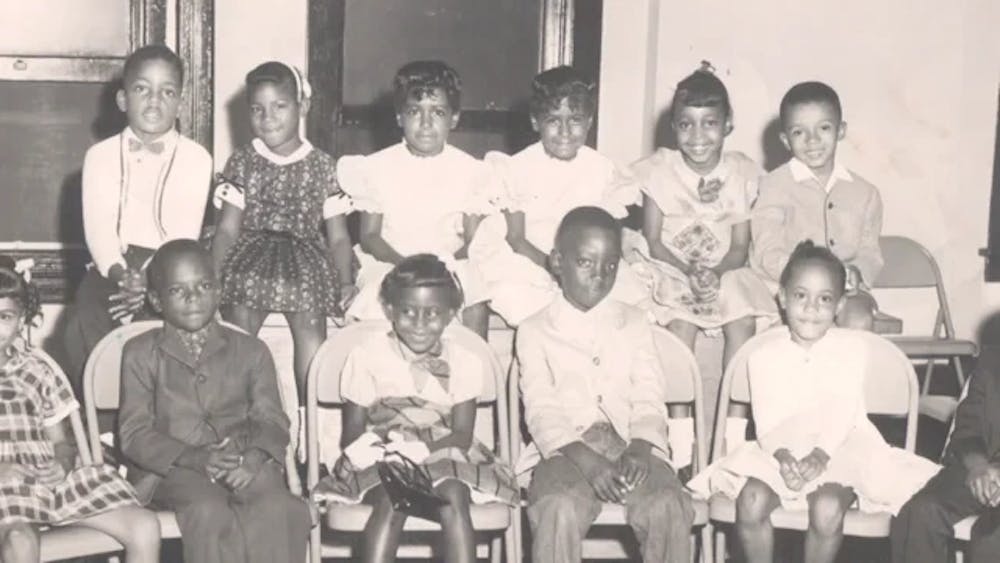To commemorate Black History Month, Crosstown Arts presented The Memphis 13 film, which tells the story of 13 first graders who, in October 1961, became some of the youngest pioneers of the Civil Rights Movement. The documentary was made by Daniel Kiel, a professor at the University of Memphis Cecil C. Humphreys School of Law. Following the film's showing, there was a Q and A, during which some members of the Memphis 13 answered audience member's questions about their experience.
In May 1956, Brown v. Board of Education ruled, “We conclude that, in the field of public education, the doctrine of separate but equal has no place.” This decision threatened to upset the entire social order of the South, although leaders in Memphis greeted the decision nonchalantly. The result of this decision prompted great change both within schools and society. In East Tennessee, the integration of Clinton High School in 1956 led to a violent protest, and across the river in Little Rock, the entry of nine students to Central High School in 1957 led to a showdown between Arkansas and the federal government in Washington.
On the momentum of the Brown decision, the Civil Rights Movement marched forward in Montgomery, Greensborough and Nashville. Yet, in Memphis, public schools remained segregated. Unsatisfied with this, the local branch of The National Association for the Advancement of Colored People (NAACP) took action. A local lawyer filed a suit in March 1960 known as Northcross v. The Board of Education of the Memphis City Schools. The suit challenged the district's continued operation of a segregated system. Maxine Smith of the NAACP said, "All we wanted was equity in education. We wanted those kids to get the same teaching and resources."
Seven years after the Brown v. Board of Education decision and nearly a century of legally mandated segregation in the Memphis city schools, Memphis confronted the issue of desegregation. Hoping to avoid violence altogether, the NAACP devised a plan to have thirteen African American first graders enter four formerly all-white schools in 1961. Rev. Billy Kyles, a prominent civil rights activist, minister and father of Memphis 13 member Dwania Kyles, said, “We did not want to make the mistake that Little Rock had made and send high schoolers. So we decided to send our 5-year-olds. Because high schoolers are tainted already, but a 5-year-old is going to act like a 5-year-old.”
A small group of civil rights leaders set out into neighborhoods in Memphis, searching for volunteers for their cause, but the search turned out to be harder than they had planned. Convincing parents to enroll their black child into an all-white school was challenging but not impossible. These children were known as the Memphis 13, and this is their story. They include Dwania Kyles, Harry Williams, Michael Willis, Alvin Freeman, Sharon Malone, Sheila Malone, Pamela Mayes, Joyce Bell, E.C. Freeman, Leandrew Wiggins, Clarence Williams, Deborah Ann Holt and Jacqueline Moore. The four schools they were integrated into include Bruce Elementary, Gordon Elementary, Rozelle Elementary and Springdale Elementary.
Police surrounded the schools to keep the children safe. While this may have kept the children physically safe, they still had to endure bullying and emotional trauma at school. Though their “new” schools were nicer and had better materials, they lacked a sense of community that these African American children had come to know in early childhood. Members of the Memphis 13 agree that “before our schools were integrated, there was a certain amount of love and compassion at all-black schools.” When asked how this experience affected the Memphis 13, one such member replied that “there was trauma in the classroom, but not at home. At home, there was black joy, black pride, and black love.” The Memphis 13 members reflected on hearing their names called out in school, and one member even referred to the integration as a social experiment.
Though civil rights leaders were successful in changing Memphis segregation laws, witnesses of the movement say changing people’s hearts is an ongoing endeavor. “We can change laws, but if we don’t change hearts, we are doomed to make the same mistakes,” said Dwania Kyles of the Memphis 13.






